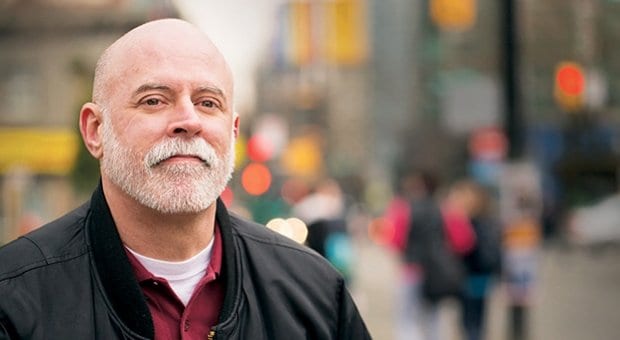Consultations on Vancouver’s first ever tourism master plan are underway, with a brainstorming session held last month that asked 150 members to identify events, trends and up-and-coming neighbourhoods that would make the city “a world-class tourism destination.”
The joint project, involving the city, Tourism Vancouver, the Vancouver Economic Commission and the Vancouver Convention Centre, will see a six-month consultation with industry stakeholders, business improvement associations (BIAs) and residents.
Though the Davie Village and Commercial Drive have been cited as tourism opportunities for Vancouver, members of the gay community have yet to be consulted. The city’s LGBTQ advisory committee has asked to be consulted during the next phase of discussions, co-chair Dean Malone says.
“We want to make sure that queer communities are part of the master plan,” Malone says. “They talk about communities, culture, all of those pieces, even going as far as talking about specific areas, and other than Commercial Drive, where queer folks might be found in greater concentrations, we’re not mentioned.”
Vancouver Pride general manager Ray Lam hadn’t heard about the master plan. He says Pride would like to be actively involved in the consultations, too.
“I’m not sure that it’s that difficult to get a place at the table; we just need to say that we have a voice,” says Rick Hurlbut, who has worked in the gay tourism industry for 20 years.
The head of the West End BIA says it’s still early in the planning process, but, Stephen Regan acknowledges, the West End needs attention.
“To that extent, Davie Village needs to be highlighted and the LGBTQ community, where Tourism Vancouver does a ton of work — I was surprised that there isn’t more profile and discussion around that,” Regan says.
Malone says there’s a need to impress upon Tourism Vancouver the importance of the queer dollar.
Hurlbut says Tourism Vancouver’s online promotion of the Davie Village is positive and prominent but barely funded by the cash-strapped agency. “All we can do is make sure that when the money starts coming back, the BIA and GLBA [Gay and Lesbian Business Association], and whoever else, have already included themselves in the dialogue,” he says.
“They want a long-term plan — five, 10, 20 years into the future,” he says. “What you need to do is say, ‘Let’s have a shovel-ready plan for the Davie Village.”
The community needs to create outdoor venues, develop more festivals and enhance the Village streetscape, he says.
“Regardless of how gay-friendly a particular destination may be, unless there’s something going on that’s truly concrete that people can get their minds around, they won’t necessarily make a decision to go to that place — whether it’s a street festival, a fetish fair, a film festival,” he says.
Gay tourists choose places with gay cultures they can immerse themselves in, he says.
One way to strengthen Vancouver’s gay culture is to make the Village a physically distinct place, Hurlbut says. Locals and visitors alike need to be able to feel it and see it.
He refers to urban planner Alan Herbert’s idea of creating a Davie Common near the Bute and Davie intersection. A plaza would add more space for thoroughfares during street-focused events on Davie, Hurlbut says.
He points to San Francisco’s Castro district, which saw the addition of a pedestrian-friendly plaza in 2009 and is now embarking on further improvements to its physical landscape, such as sidewalk widening.
That project got a boost when it was announced that $4 million would be secured from bond funds, according to a report on sf.streetsblog.org.
“Usually, in the typical planning process, you have a workshop at the beginning where you look at existing conditions and talk about what we want to do, but the community’s already done that work for us,” one Castro resident says in the report. “This is an iconic street, and a really important street for the LGBT community and for the city of San Francisco, so this is a gigantic opportunity to make it really shine as a place that everyone’s really proud of.”
Hurlbut says the community has to be prepared to knock on Tourism Vancouver’s door all the time. “You’re not just sitting there to see what everyone else will say and then put up your hand and say, ‘Me too, me too.’
“Present a brief, so that the people who, six months from now, are sitting down and taking all this input and making decisions have something you prepared, not an interpretation of what you said.”
For map locations and website links to almost 100 area places of interest see our gay Vancouver listings pages.


 Why you can trust Xtra
Why you can trust Xtra